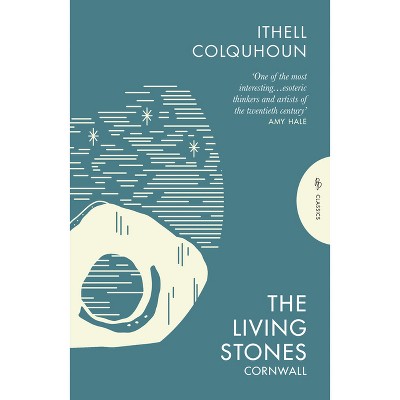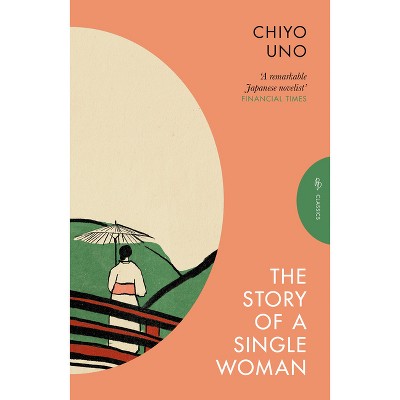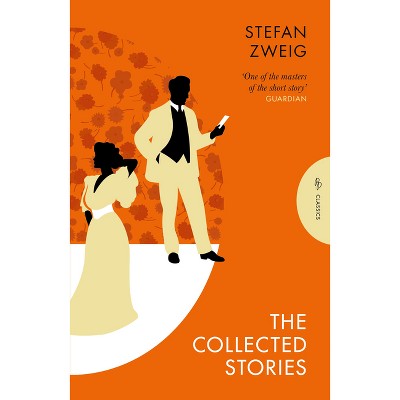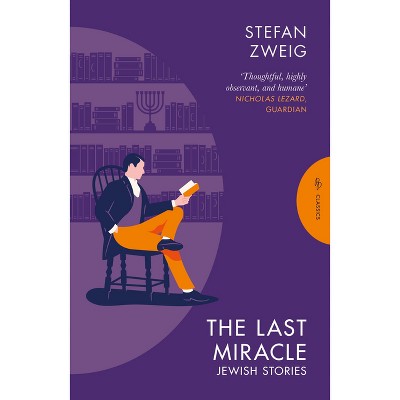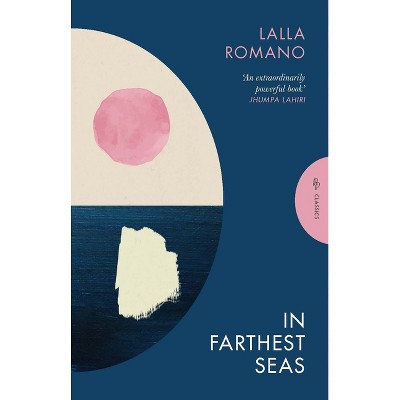Sponsored

Such Sweet Thunder - (Pushkin Press Classics) by Vincent O Carter (Paperback)
$20.00Save $4.95 (20% off)
In Stock
Eligible for registries and wish lists
Sponsored
About this item
Highlights
- "Astonishing ... an uncommonly rich picture of Black American family life in early 20th century Jim Crow America.
- About the Author: Vincent O. Carter was born in Kansas City in 1924.
- 652 Pages
- Fiction + Literature Genres, Historical
- Series Name: Pushkin Press Classics
Description
About the Book
Set in Kansas City during the Jazz Age of the 1920s and '30s, this novel is a majestic evocation of childhood and parental love told through the eyes of a remarkable boy. This edition underwent substantial editing to give the original, unedited story more immediacy and new connections with the reader.Book Synopsis
"Astonishing ... an uncommonly rich picture of Black American family life in early 20th century Jim Crow America." -- Publishers Weekly (starred review) This "vibrant portrait of African American life" in Jazz Age Kansas City captures the magic of childhood and parental love through the eyes of a remarkable boy (New York Times)This must-read rediscovery, published in an elegant and unabridged paperback edition with a new foreword, is a literary masterpiece poised to take its rightful place in the American literary canon. Such Sweet Thunder immerses readers in the life of a precocious infant, Amerigo Jones, and then tells the story of his first 18 years as he becomes aware of the adult world, from racism and crime to falling in love. All the while, in one of the most moving homages to parents ever to appear in literature, Amerigo is protected by Viola and Rutherford, who are loving and, mostly, even-tempered, but also desperately young -- teenagers themselves when Amerigo is born -- and poor. When it was finally published in 2003, 40 years after Carter completed it and 20 years after he died, Critics hailed the novel's "unflinching condemnation of a society that rejects bright, eager Black children" (The Cleveland Plain Dealer). This "colossal work of fiction" (The Kansas City Star) and "vibrant portrait of African-American life" (New York Times) is set in an era marred by racial segregation and relentless, daily injustices and yet renders with deep appreciation and artistry a time and place enriched by a widely influential African American culture and a fierce feeling for family and community.
Review Quotes
"Carter had finished Such Sweet Thunder in 1963, but by 1970 he had given up trying to find a publisher for it. Most unpublished manuscripts stay that way for a reason; Such Sweet Thunder is an exception. The novel . . . is a dense and vibrant portrait of African-American life at the nation's crossroads. Carter's choice of period is felicitous. The Kansas City that he describes is in its bustling, bloody heyday, a town where gangsters are gunned down in the streets, Joe Turner plays on the radio, and children wander home past overrun soup kitchens, clanging streetcars and nightclubs with names like Dante's Inferno. With his fastidious attention to urban detail . . . Carter even resembles another, more famous expatriate, James Joyce. But the novel's real achievement is in its evocation of Amerigo Jones's childhood and his interaction with his parents, Rutherford and Viola, themselves only teenagers when their son's life begins. . . . Carter is in essence a celebratory writer, not a voice of protest, and the thunder that sounds in his novel is meant to evoke the storm of sensation that illuminates American life. . . . Such Sweet Thunder belongs with other enduring documentaries of the dispossessed, like Cormac McCarthy's Suttree or Langston Hughes's novel Not Without Laughter." -- New York Times Book Review
"The book takes us into its arms and transports us back in time to a racially segregated Kansas City in the late 1920s. . . . Seamlessly, gently, Such Sweet Thunder carries Amerigo and us through adolescence, first love and the edge of world war and its sad demands on the safe, secure world Amerigo had come to love. . . . Carter connects all of our childhoods to Amerigo's, while making us feel intensely what made his childhood - Carter's childhood, presumably - as special as it was. The book does his memory proud. And gives our present time a priceless heirloom. The novel arrives late. But it lives." -- Newsday
"The story behind Such Sweet Thunder is almost as captivating as the extraordinary tale told within its pages . . . A rousing, inspired work, keenly observed and soulful . . . The novel sparkles with life, soaring with the loose flow of a jazzy improvisation. More akin in style to Charles Dickens than Richard Wright or James Baldwin, Carter writes prose that tingles with detail . . . Racism certainly stings Amerigo's life, as he finds his opportunities limited by prejudice. But Carter's characters are not, to borrow a famous phrase from Zora Neale Hurston, 'tragically colored, ' and this frees Amerigo's story from getting mired in a woe-is-me pity party. . . Ambitious and resonant, Such Sweet Thunder often achieves brilliance; at its best, it has the kinetic energy of an August Wilson play. . . . This is a rich addition to our literary understanding of the 20th-century African-American experience." -- Boston Globe
"Originally written in 1963 and shelved, this hefty, astonishing novel by a black American expatriate who died in 1983 tells -- in electric modernist vernacular prose -- the story of a black child's life in Jim Crow America. . . . Through a steady accumulation of detail, sustained lyricism, flights of fancy and, especially, reams of swinging dialogue, Carter paints an uncommonly rich picture of black American family life in the early 20th century. Like the composition it is named for, a Duke Ellington and Billy Strayhorn tribute to Shakespeare, it is a marvelous blend of jazz rhythms and high literary tradition. -- Publishers Weekly (starred review)
"This diamond in the rough is an extraordinarily honest and compassionate child's-eye view of a world too seldom seen in American fiction." -- Kirkus Reviews "Readers will appreciate Such Sweet Thunder's dreamy, nostalgic quality and lyrical writing, which evokes urban life before the war and offers a stirring portrait of a young boy growing up." -- Booklist (starred review)
"Infused with the sounds and spirit of Kansas City jazz, the author's gritty style was ahead of its time." -- Library Journal "A colossal work of fiction . . . Sprawling and searching, it is Dickensian or even Joycean in scope. Carter's rendering of Amerigo's journey to adulthood is masterful. . . . Carter's greatest triumph is his dreamlike depiction of Amerigo's childhood mind and soul. Few writers have captured that strange, off-kilter, almost mystical feeling of what it is like to exist on this planet as a preadolescent. . . Carter gets it right because he laces the waters of innocence with bracing shots of guilt, confusion and pain. His Amerigo roams downtown Kansas City, finding adventure, yes, but also the misadventure of falling in with a bad crowd of kids, and, worse yet, the discovery of violence within himself: The passage in which the boy unleashes his cruelties upon a kitten is hard to read, indeed -- but also rings terribly true. Of all the novels about boyhood I've encountered, I can think of only one that achieves Carter's level of fearless mimesis: Roddy Doyle's tender-brutal Paddy Clarke Ha-Ha-Ha. Another extraordinary aspect of this book is its refusal to pin all its hero's troubles on racism. . . . Amerigo's reactions to his world constitute a deeply moving experience for the reader. Obviously, there is anger here -- but also tremendous love in the familial passages. And Amerigo's longing, his quest for an existence more meaningful than the one his world begrudges him, is both beautiful and wrenching. Such Sweet Thunder is a soulful, haunting book. . . . Readers seeking a comparative way into this novel might think of Ralph Ellison's Invisible Man or Langston Hughes' Not Without Laughter. Such likenesses are valid thematically but not stylistically; both Hughes and Ellison were more direct. Such Sweet Thunder, following Amerigo about in his wanderings, seems closer to James Joyce's Ulysses, and also displays a kinship to Charles Dickens at his most expansive. . . . This novel is not only a Bildungsroman but also a road map -- an atlas that points the way to both the heartland and the human heart." -- Kansas City Star
"An unapologetically literary effort with echoes of Faulkner, Twain and Joyce. . . . For its lyrical rendering of a time and place long vanished, this is a book to savor, slowly." -- Entertainment Weekly
Fans of Toni Morrison or William Kennedy will appreciate Carter's style, and history buffs will be fascinated by a Kansas City that may have otherwise gone unsung. -- Midwest Living Magazine "A spiraling and powerful account of African American life in Kansas City during the 1920s and 1930s. Carter paints a rich, jazz-like portrait of pre-World War II life in Black America. . . . By fusing the best European modernist literary traditions with African American ones, Carter weaves a colorful, distinctive tapestry of a seminal period in African American history." -- Seattle Skanner
"Such Sweet Thunder is Carter's Portrait of the Artist. . . . Amerigo Jones -- the name itself speaks of discovery and bold hope -- is Carter's stand-in in the novel . . . Dedicated to musical giant Duke Ellington, the book is a jazz mix of sounds and sensations - the phonograph in the living room, the slamming of screen doors up and down his alley, trams clacking down the boulevard, the rhythms and rhymes of his young parents' enthusiastic speech ("I was standin' pat in ma gray bo-back, Jack!"). Amerigo as a child and young man is thirsty for the world, and we drink it all in with him. . . . A certain diamond-in-the-rough feeling only adds to the joy of discovering a book that spent far too long on a shelf in Switzerland." -- Rain Taxi "Carter bridges Zora Neale Hurston's folkloric narratives and Toni Morrison's communal spirituals. In reading Carter's intermittently brilliant narrative of black boyhood and adolescence in the Jazz Age and on through the Depression and Second World War, one is not treated to a dysfunctional "ghetto," nor a liberal oasis of zebra-colored neighbors, friends and family. Instead, Carter depicts, painstakingly, a mainly black, urban community that is close-knit, organic and striving for uplift. In his Kansas City, MO., setting, black life ain't easy, but it has its passions, satisfactions and inspirations. . . . "Few works of legitimate fiction are so insistently frank about a boy's proto-sexual, innocent but instinctive yearnings. Fundamentally Romantic, even wholesomely naive, this Bildungsroman idealizes male desire to the point that when, as a young man, Amerigo fails to win his ferociously chaperoned brown bourgeois sweetheart, Cosima, he prefers celibacy to the available charms of her obtainable rival. . . . "Carter Musters profound empathy and warmth for all his characters, especially Amerigo's parents, Rutherford and Viola, who are self-sacrificing, loyal, contradictory, loving, bawdy and philosophical. Carter's creations evade stereotype because they seem modeled on people he knew in true-grit Missouri and whom he recollected later in Swiss tranquility. . . . "Carter's novel continues to make noise - and subtly subversive music. Its survival, after so much neglect, is its triumph." -- National Post (Canada)
"Some critics have speculated that publishers rejected this book because its gentle coming-of-age tale, partially based on Carter's own life, was at odds with the fiery black-power rhetoric of the '60s. If that's true, publishers missed this book's quiet but unflinching condemnation of a society that rejects bright, eager black children." -- Cleveland Plain Dealer
"Carter's work was simply ahead of its time. . . . the book is becoming a major literary milestone, and deservedly so. What if the manuscript, and Amerigo Jones with it, had disappeared without a trace? Try to imagine the American literary landscape without Scout Finch from To Kill A Mockingbird. Or picture the jazz scene if Charlie Parker fell at age 24 instead of 34." -- Jazz Ambassador Magazine
"It is seldom that one comes across a book that dazzles and surprises, a book that will surely withstand the test of time. Such Sweet Thunder is such a book. . . . Not since reading Henry Roth's rediscovered masterpiece, Call it Sleep, has this writer encountered a book which so viscerally conveys the sensibility and environment of a young protagonist rooted in
family while at the same time opening to the grand and thrilling world around him. . . . A dreamer and a stargazer, Amerigo Jones is a character and an eye-on-the-world to stand beside the more angry and alienated protagonists of Richard Wright and James Baldwin, Carter's contemporaries and fellow expatriates. Perhaps Carter's onomatopoeic use of language and punctuation, his deep immersion in the sensuousness of life, his skilled use of dialect to reflect on class in society, his unexpected changes of scene, inserting stunning set pieces into the text, like gems, or contemporary song lyrics, like flashes of insight, and maybe even the sheer volume of his prose put off editors forty years ago. Perhaps it was racism that stood in his way, but racism is not Carter's subject here. Rather, it is the glories of his race that he celebrates" -- Santa Fe New Mexican Missouri spawned Huck Finn . . . and now it will have Amerigo Jones too. -- Speakeasy
About the Author
Vincent O. Carter was born in Kansas City in 1924. At 17 he was drafted into the Army, and took part in the Normandy invasion. After the war, he attended Lincoln University (PA) and Wayne State in Detroit, then returned to Europe, spending time in Paris, Munich, and Amsterdam before settling in Bern, where he died in 1983. He is also the author of The Bern Book. Jesse McCarthy is an essayist, cultural critic, and the John L. Loeb Associate Professor of Humanities and Social Sciences at Harvard. His writing has appeared in The New York Times Book Review, The Nation, Dissent, The New Republic and n+1. He was the recipient of the 2022 Whiting Award for his collection Who Will Pay Reparations on My Soul?. His recent book, The Blue Period, establishes Such Sweet Thunder as a work to be read and taught alongside James Baldwin and Ralph Ellison.Dimensions (Overall): 7.75 Inches (H) x 5.15 Inches (W) x 1.6 Inches (D)
Weight: .95 Pounds
Suggested Age: 22 Years and Up
Number of Pages: 652
Genre: Fiction + Literature Genres
Sub-Genre: Historical
Series Title: Pushkin Press Classics
Publisher: Pushkin Press Classics
Theme: General
Format: Paperback
Author: Vincent O Carter
Language: English
Street Date: February 4, 2025
TCIN: 93353339
UPC: 9781805332664
Item Number (DPCI): 247-48-3962
Origin: Made in the USA or Imported
If the item details aren’t accurate or complete, we want to know about it.
Shipping details
Estimated ship dimensions: 1.6 inches length x 5.15 inches width x 7.75 inches height
Estimated ship weight: 0.95 pounds
We regret that this item cannot be shipped to PO Boxes.
This item cannot be shipped to the following locations: American Samoa (see also separate entry under AS), Guam (see also separate entry under GU), Northern Mariana Islands, Puerto Rico (see also separate entry under PR), United States Minor Outlying Islands, Virgin Islands, U.S., APO/FPO
Return details
This item can be returned to any Target store or Target.com.
This item must be returned within 90 days of the date it was purchased in store, shipped, delivered by a Shipt shopper, or made ready for pickup.
See the return policy for complete information.
Trending Literary Fiction

Bestseller
$20.36
was $24.48 New lower price
Buy 1, get 1 50% off select books & accessories
4.6 out of 5 stars with 56 ratings


Highly rated
$22.80
MSRP $38.00
Buy 1, get 1 50% off select books & accessories
4.8 out of 5 stars with 13 ratings



$9.85 - $23.09
MSRP $15.99 - $32.99
Buy 1, get 1 50% off select books & accessories
4.8 out of 5 stars with 147 ratings
